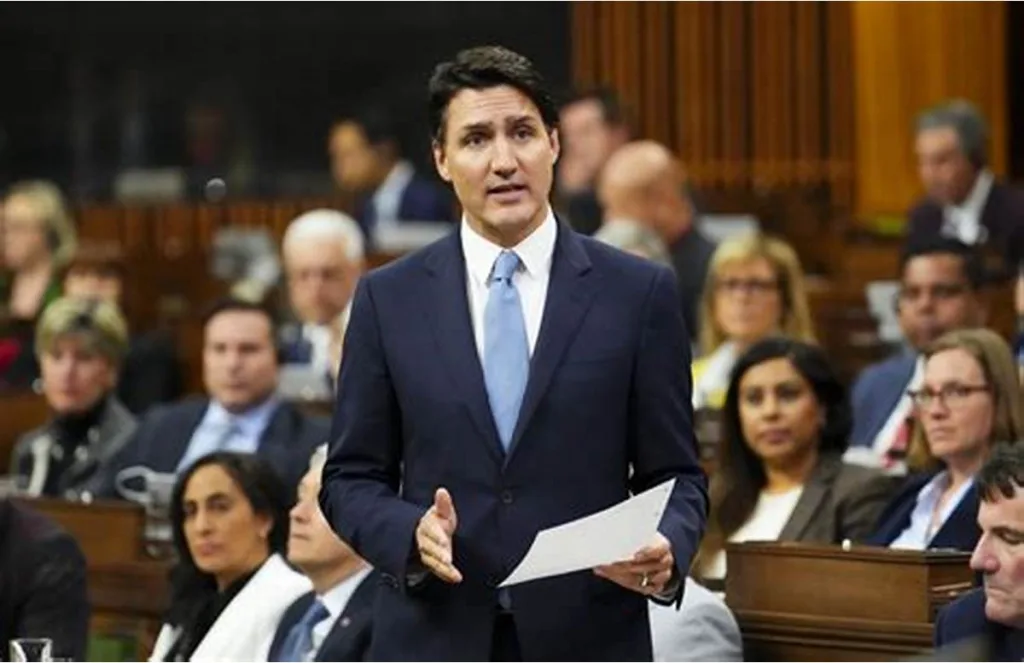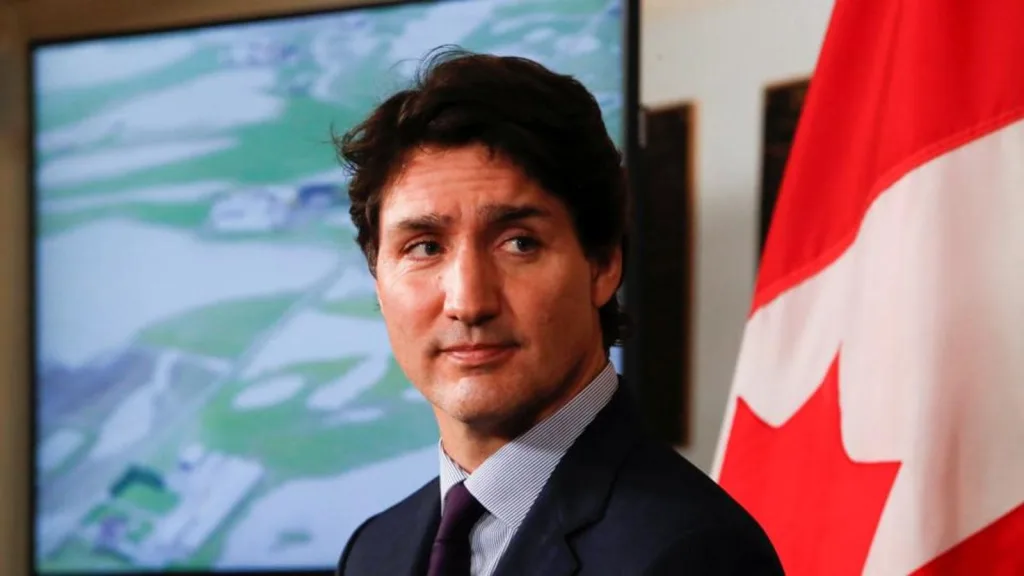Canadian Prime Minister Justin Trudeau announced on Monday his resignation from the presidency of the government and from the leadership of the ruling Liberal Party after nine years in power.
This decision comes against the backdrop of a political crisis within his government, highlighted by the sudden resignation of Finance Minister Chrystia Freeland, who is one of his strongest and most loyal allies.
Freeland’s resignation came against the backdrop of a disagreement with Trudeau over how to deal with US President-elect Donald Trump’s threat to impose strict tariffs on Canadian goods.

Choosing a successor
Trudeau continues in office until the party chooses a successor to him, and faced increasing calls from his party’s deputies to step down, coinciding with a significant decline in his popularity among the Canadian public opinion. According to an Ipsos poll conducted in September, only 26% of respondents indicated that they preferred Trudeau as prime minister, while his rival from the Conservative party overtook him by a wide margin.

Early elections
Polls predicted that his Liberal Party would face defeat in the next elections, scheduled to be held before October this year. However, his resignation may open the door to calls for early elections.
Trudeau first came to power in 2015, leading the Liberal Party and promising in his election campaign a program that included open immigration policies, combating climate change, and raising taxes on the wealthy.
However, his term was marred by several political crises and scandals, including the resignation of Justice Minister Jody Wilson-Raybould, and offensive photos of his youth published in 2019, which negatively affected his re-election campaign.
Despite the challenges, Trudeau retained power for nine years, but in recent years he has faced increasing criticism for the high cost of living, which has increased public frustration among Canadians.
Major challenges highlighted by Trump
Trudeau’s successor will have to deal with significant challenges, most notably Trump’s threats to impose tariffs on Canadian imports, a move that economists have described as potentially causing serious damage to the Canadian economy. These fees, announced by Trump, are aimed at combating illegal immigration, according to his campaign statements.
